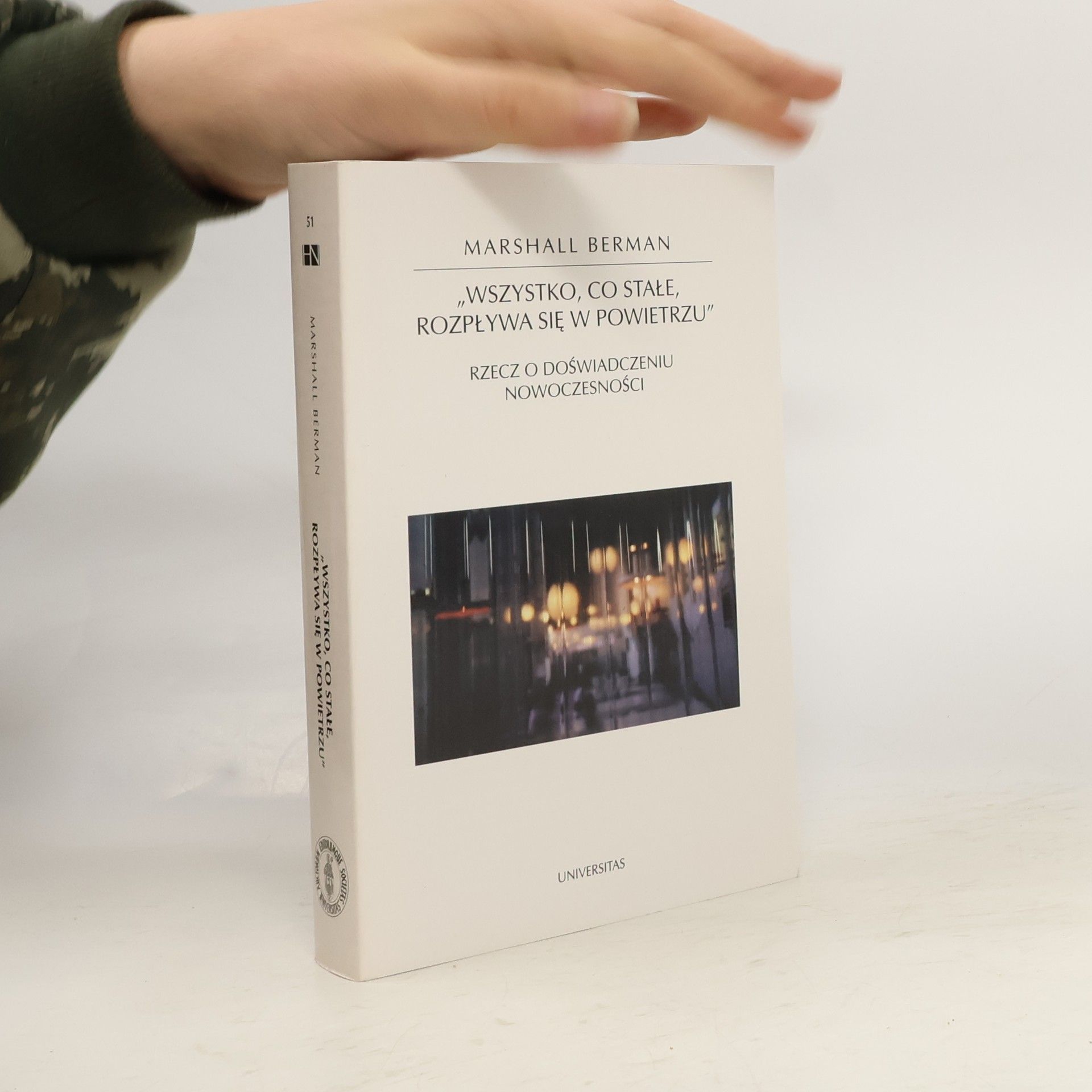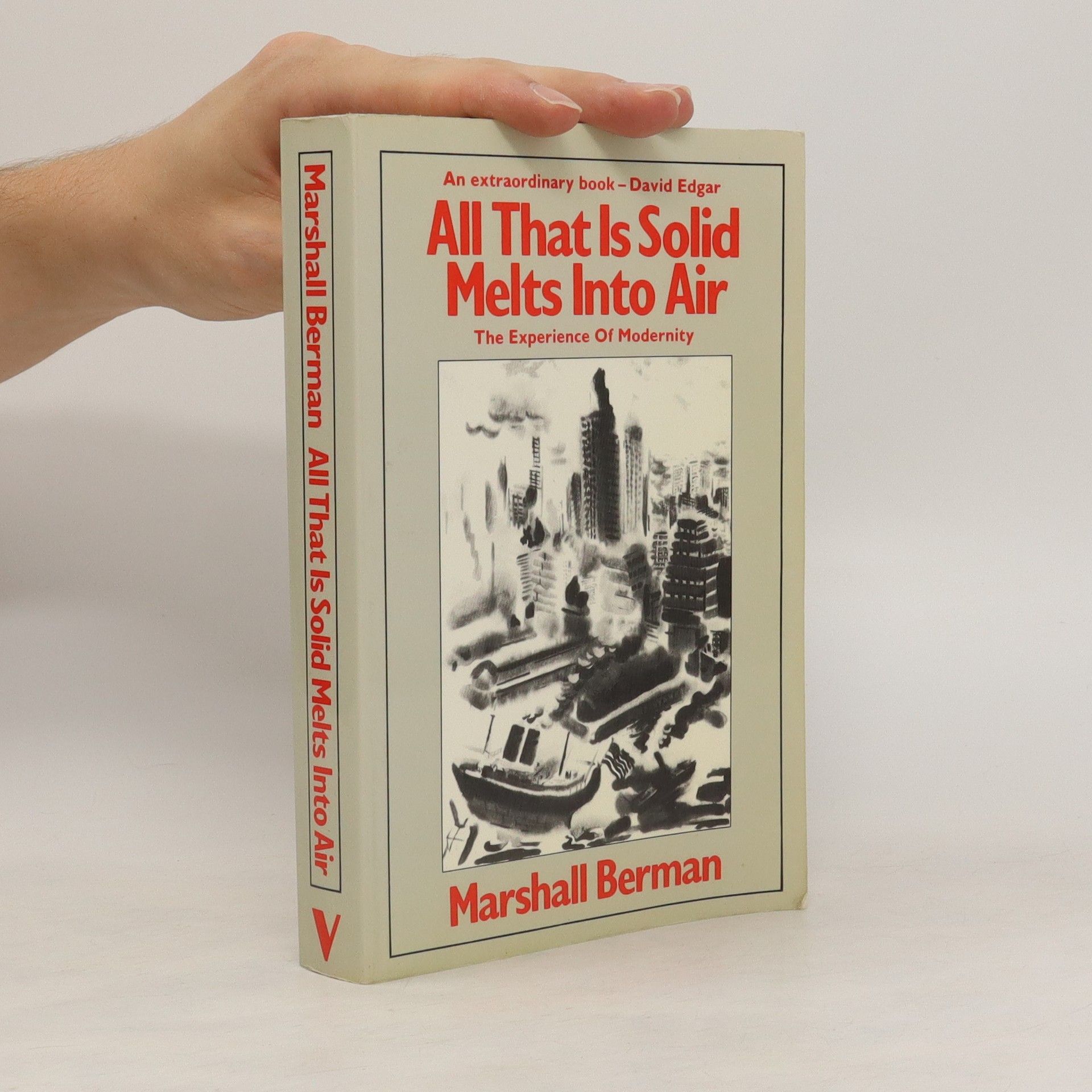The experience of modernization -- the dizzying social changes that swept millions of people into the capitalist world -- and modernism in art, literature and architecture are brilliantly integrated in this account.
Marshall Berman Libros
Marshall Berman fue un filósofo y escritor estadounidense cuya obra se adentró profundamente en la experiencia de la modernidad y el urbanismo. Su escritura se caracteriza por su capacidad para conectar tendencias históricas con observaciones personales e inflexiones situacionales. A través de una lente humanista marxista, exploró cómo las fuerzas sociales y políticas se manifiestan en la vida individual y los paisajes urbanos. La obra de Berman invita a los lectores a considerar las dinámicas del mundo moderno y su impacto en la condición humana.


"Wszystko, co stałe, rozpływa się w powietrzu"
rzecz o doświadczeniu nowoczesności
- 459 páginas
- 17 horas de lectura